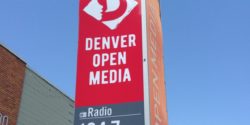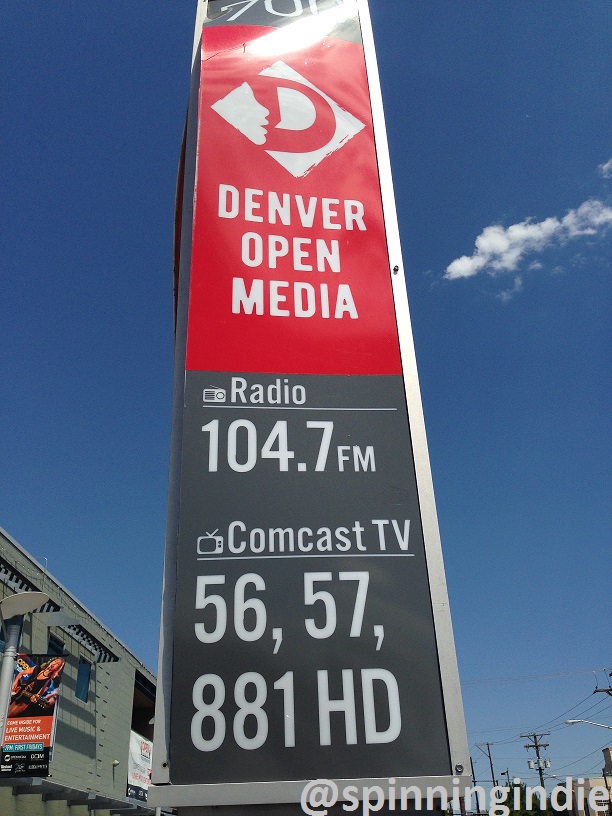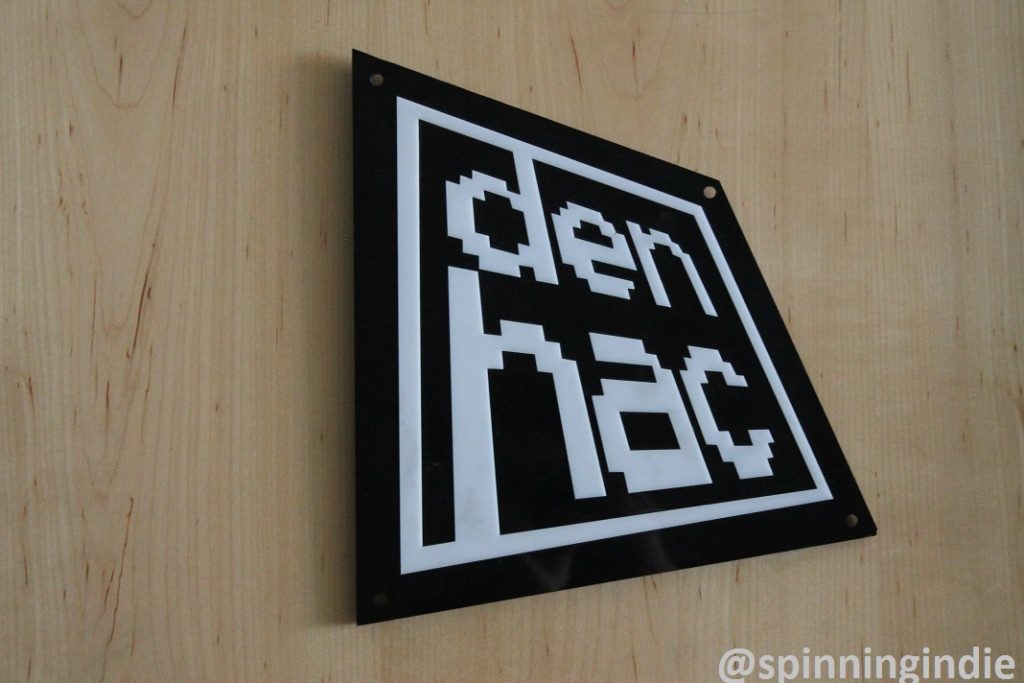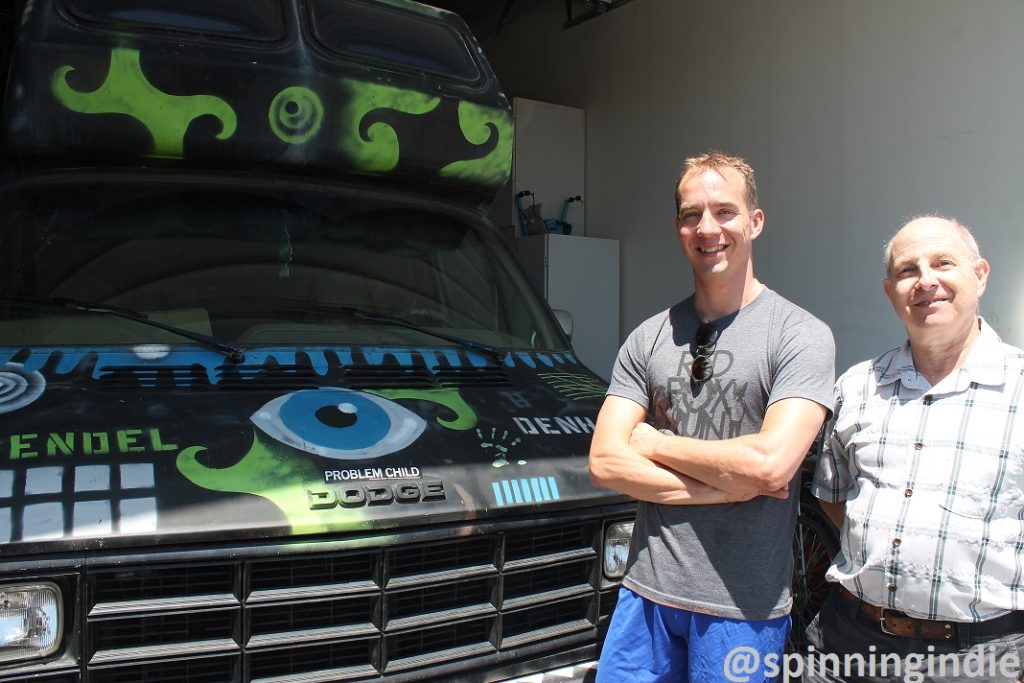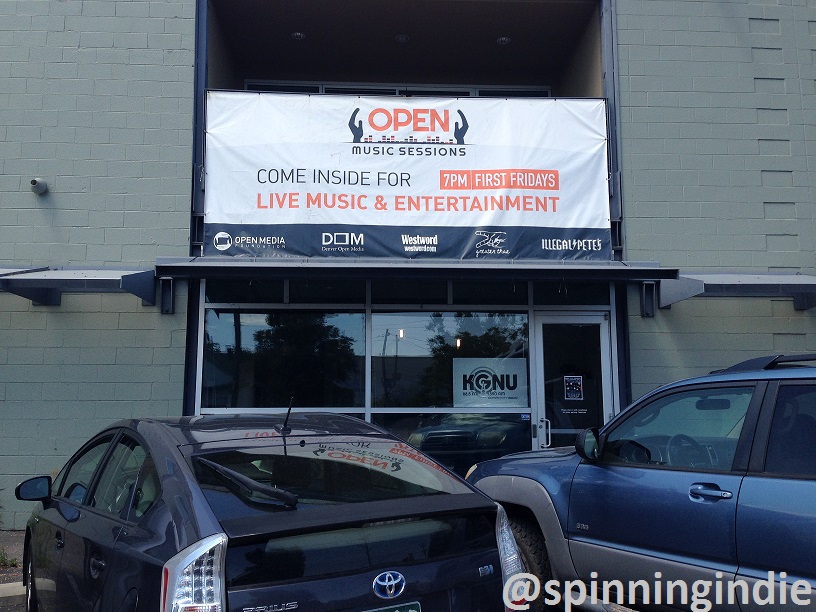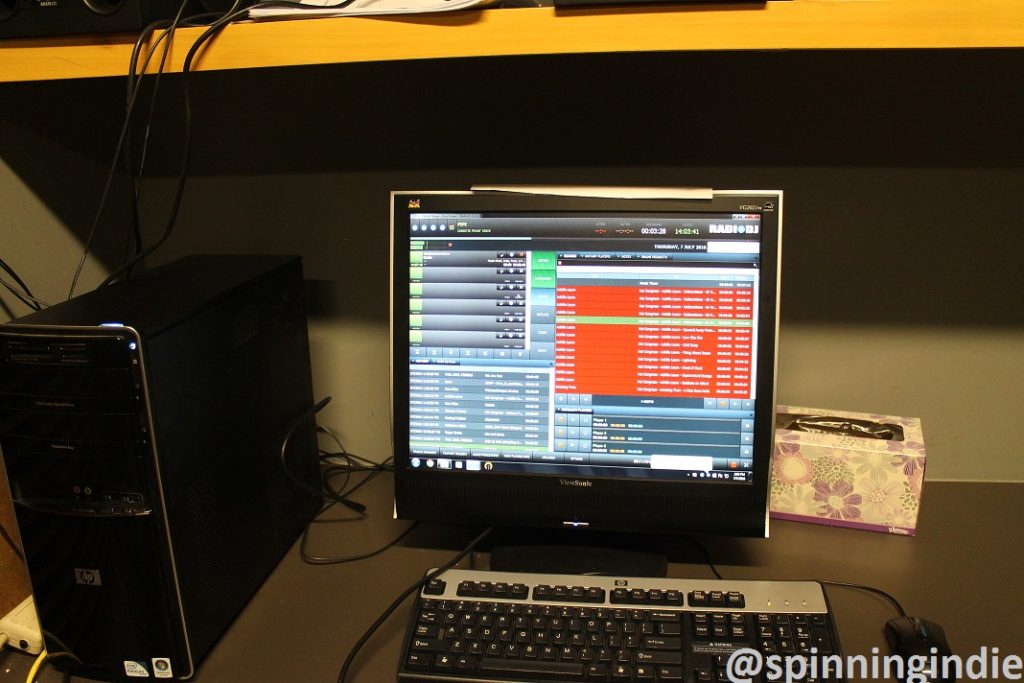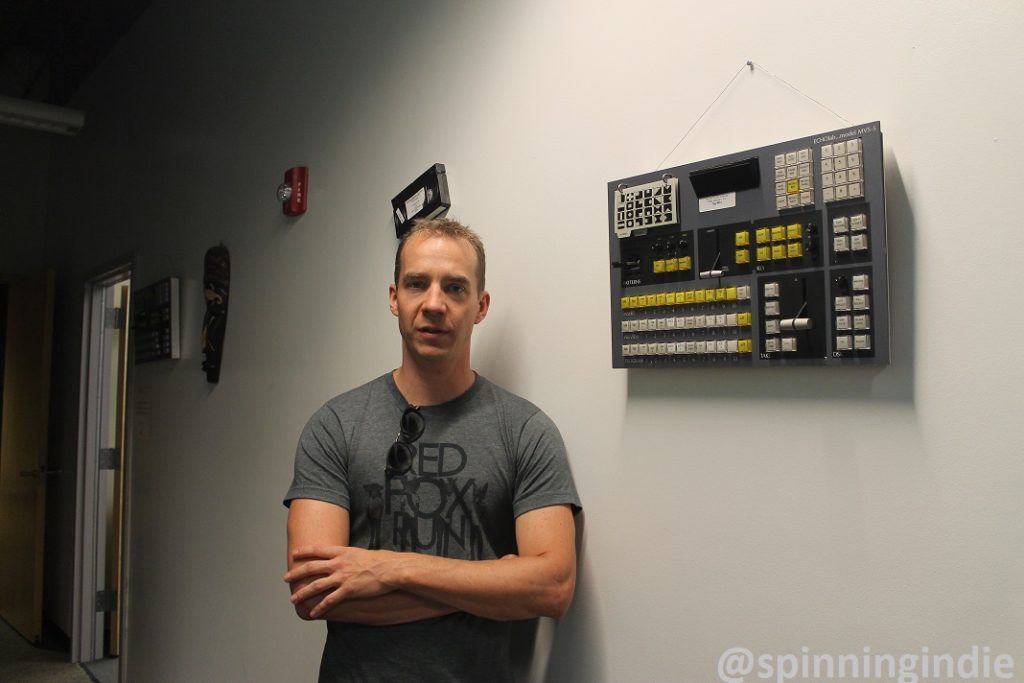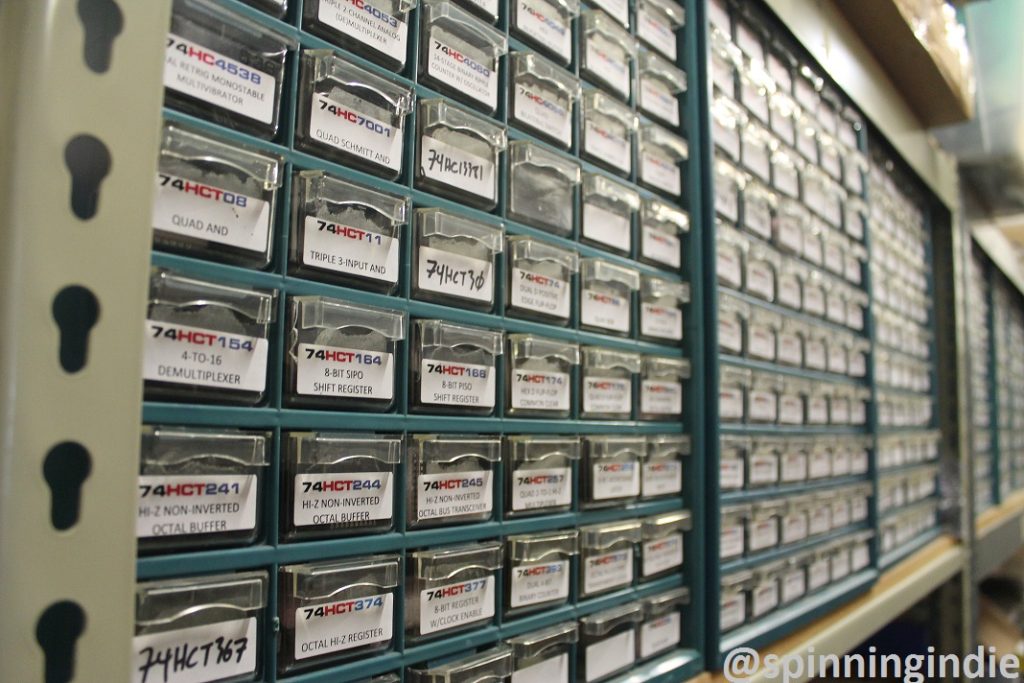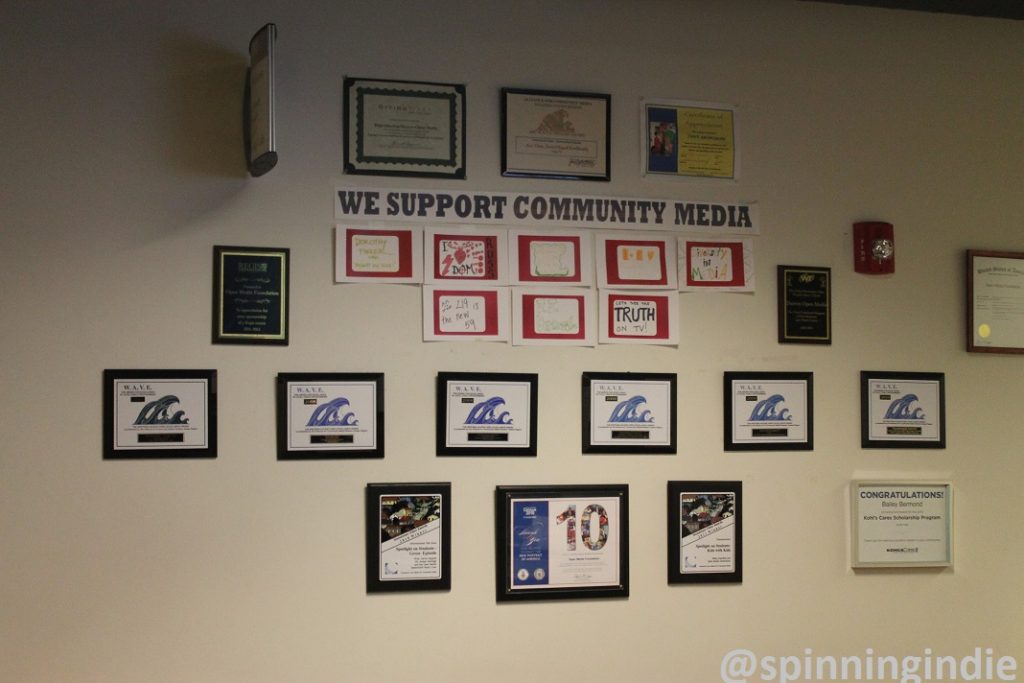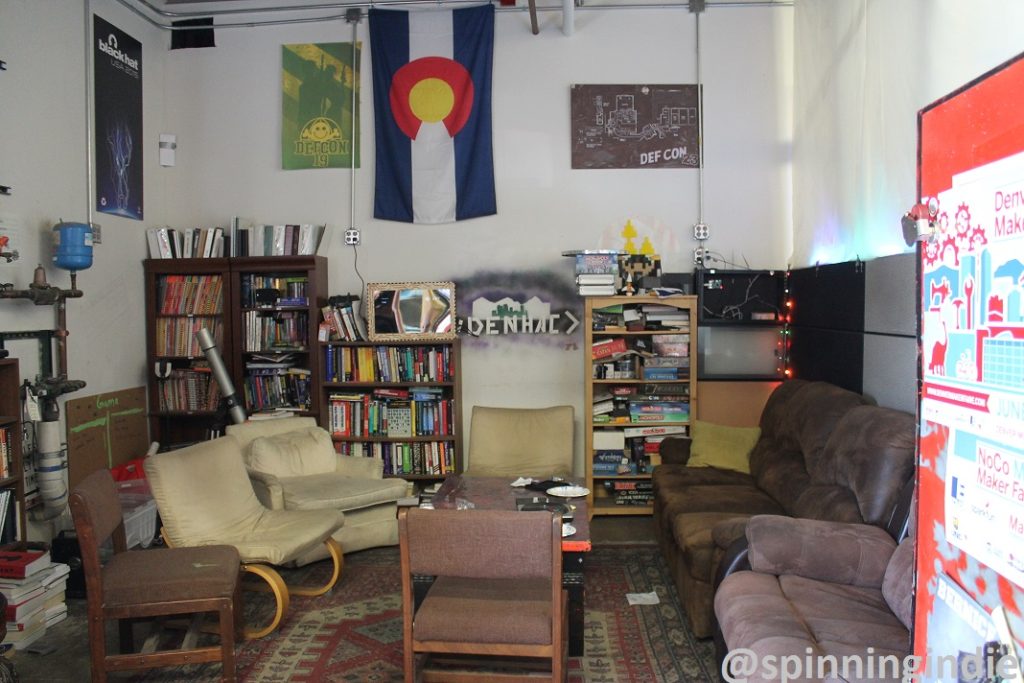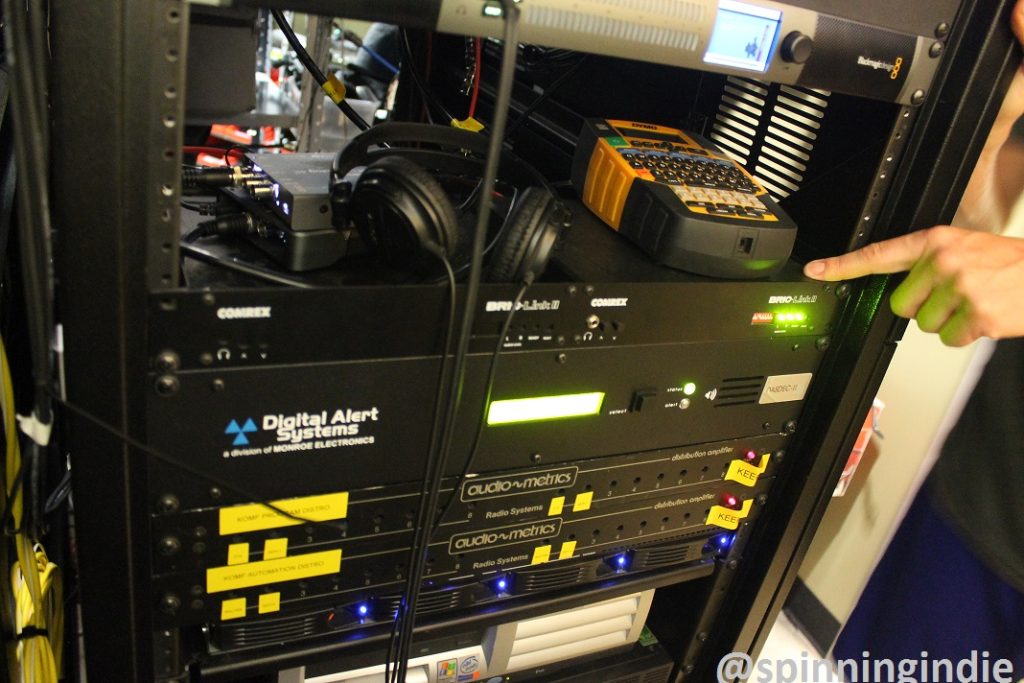My second radio station visit in Denver was to Open Media Foundation (OMF)’s new low power FM (LPFM) radio station KOMF-LP. On the afternoon of Thursday, July 7th, I met up with Chief Engineer Dave Dieter and Steering Committee Member Greg Barman to learn more about the station.
It warmed my heart to learn that the station is actually a collaborative project between Denver Open Media (the television arm of Open Media Foundation) and Denver Hackerspace (denhac) – of which Dieter and Barman are both members. Both groups had originally applied for new LPFM licenses during the fall 2013 filing window.
Barman filled me in on some of the history over email, describing how Denver Open Media and Denver Hackerspace ended up collaborating. He explained:
…Denver Open Media Foundation, led by Tony Shawcross and Denis Moynihan…filed an application for a station that would expand their educational mission of putting the power of the media in the hands of the people. OMF already provided media and technology equipment and training, governmental media services, and 3 channels of public access TV to the city/county of Denver. OMF had the content, the infrastructure, and the contacts in the community that would prove to be invaluable to launch a community-oriented station.
A second group that applied was Denver Hackerspace (denhac), a non-profit membership group of tech enthusiasts (or ‘Hackerspace collective’) headquartered in North Denver on 58th Avenue. [Members]…David Dieter and Anthony Stonaker [led the charge to apply]…for an LPFM license with the goal of building a station dedicated to local tech, arts and culture.”
Although there were originally three applicants for the 104.7 FM channel in Denver, one was dismissed by the FCC. Denver Open Media and Denver Hackerspace were then left with the option of either coming to an agreement or sharing the channel. According to Barman, “In the fall of 2014, they agreed to combine forces to co-manage and operate a station, with denhac dropping its application and OMF being the sole official licensee. They submitted a settlement agreement to the FCC and began what they thought would be a long, bureaucratic wait for approval. Everyone was astonished when the FCC responded – within just a few hours! – on October 6, 2014 with approval of a Construction Permit to build the LPFM station on 104.7.” Barman told me, “we realized we couldn’t do it alone” and Dieter added that it helped that, “our missions aligned.”
Around the same time in fall, 2014, denhac moved into a warehouse space in the OMF building after it faced a large rent increase in its old space. The two groups then began working together even more closely and launched their new LPFM, KOMF-LP, on June 3rd, 2016. The launch coincided with “First Friday” art festivities in the neighborhood where the station resides and KOMF-LP celebrated with a live broadcast of a concert from the front of its building.
Dieter and Barman joked with me that KOMF-LP is currently a “station on a shelf,” in a nod to its current studio location in the corner of a TV control room at OMF. Although the station is doing occasional live broadcasts (it hopes to do some from local music venues too), it doesn’t have any live shows yet. Instead, it is airing a mix of music, talk and current events programming that has been uploaded directly by community members at denveropenmedia.org.
Eventually, programming will be organized in blocks of music and spoken content (news, public affairs, and educational programming).
For the moment, though, the station is limited because it doesn’t have a fully outfitted studio for DJs to work from. Barman said that they still need to raise funds for a space in addition to requiring manpower to build the studio. The crew involved with KOMF-LP is still pretty small and includes both OMF and denhac members.
KOMF-LP already has an active group of listeners who are casting votes on the music played on the station. The tech-savvy folks who’ve set up the station’s automation system have it give extra weight to tracks with the most votes on the station’s website. Dieter said with pride, “We’re probably the most technically advanced LPFM,” acknowledging that denhac members have brought a myriad number of skills to the project.
As we toured around the OMF space, I got to see offices, a community room, media training rooms, denhac’s warehouse (complete with its own van), and a television studio. Community radio station KGNU also has a satellite studio at OMF, but no one was around at the time of my visit. While the denhac members of KOMF-LP have been largely focused on technical details, OMF members have been working on operations and fundraising. I met an AmeriCorps member, Ginger Harris, who told me that she’s been working on setting up internships and has also worked on content approval guides. A recent college graduate, with no prior experience in radio, she said that it’s “very community oriented” and that “people are very excited to be on the radio.”
Dieter said that he’s “really optimistic” about KOMF-LP’s potential and described the current state of the station as “crawling,” but that it hopes it will be “walking soon.”
While driving around Denver, I was able to hear the station for a much bigger range than I had expected. With its tower located near Coors Field in Denver, the station has a large potential audience of listeners. I caught a mix of music and public affairs programming when I tuned in and that’s in keeping with the vision expressed on the KOMF website, which states:
DOM 104.7 will be unlike any other radio station on the dial. Dedicated entirely to Denver, there will be no national music, news or programming… only local content. Have music, news or a podcast you want to submit, the process is unlike any other FM radio station because there are no gatekeepers. Local artists have an unprecedented opportunity to reach new audiences, while the listeners decide what music, news, and radio content they like best at denveropenmedia.org. Have an idea you want to put on the radio? DOM’s Public Access studios are a space for local creatives to collaborate and perform in our state-of-the-art studios, edit in our community computing labs, and take classes to learn cutting-edge media tools”
Thanks to Dave Dieter and Greg Barman for the great tour of denhac and OMF. I look forward to following the station’s progress in the months to come! This is my 107th radio station tour report and I have more to come from Southern California and Colorado. See my most recent field trips on Radio Survivor and see a full list of my station tour reports on Spinning Indie.

